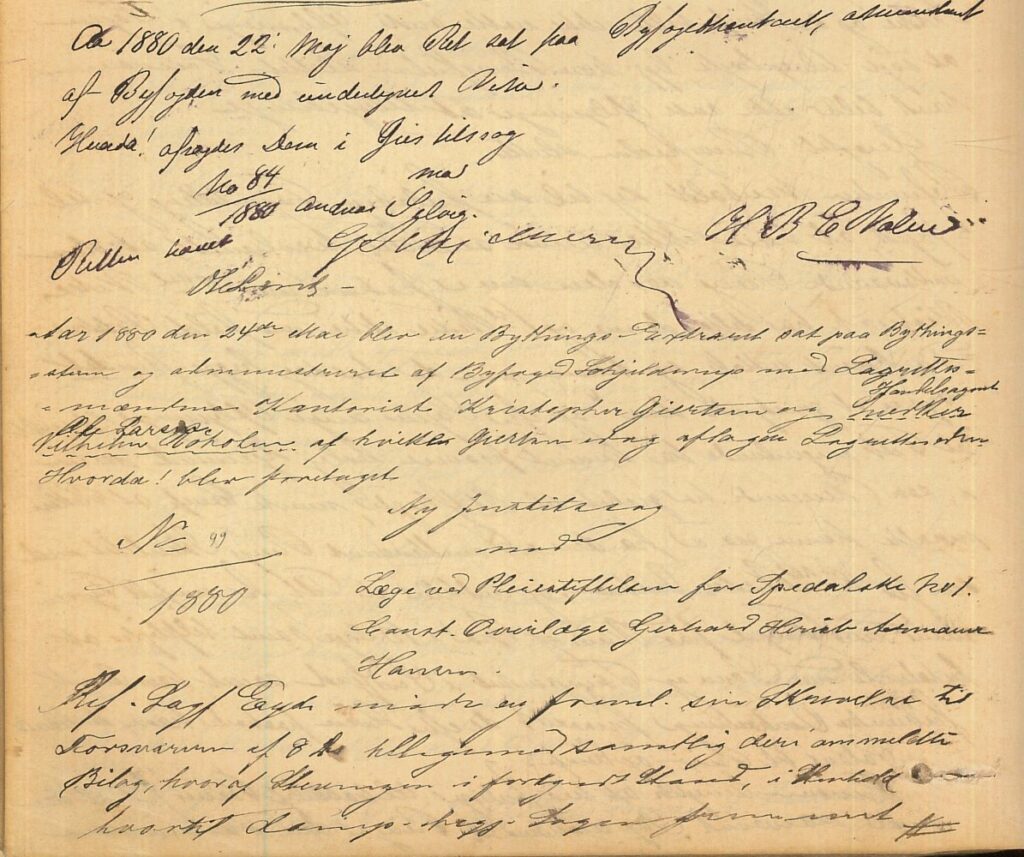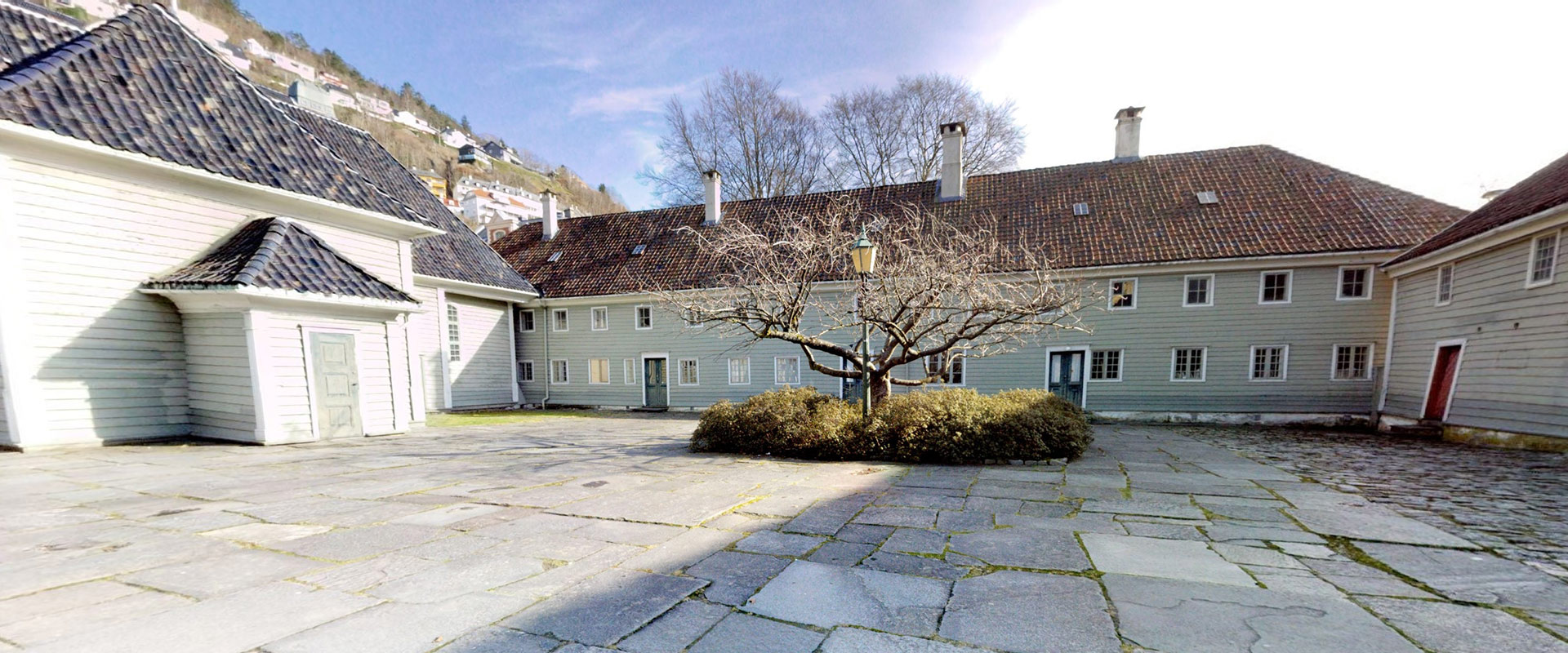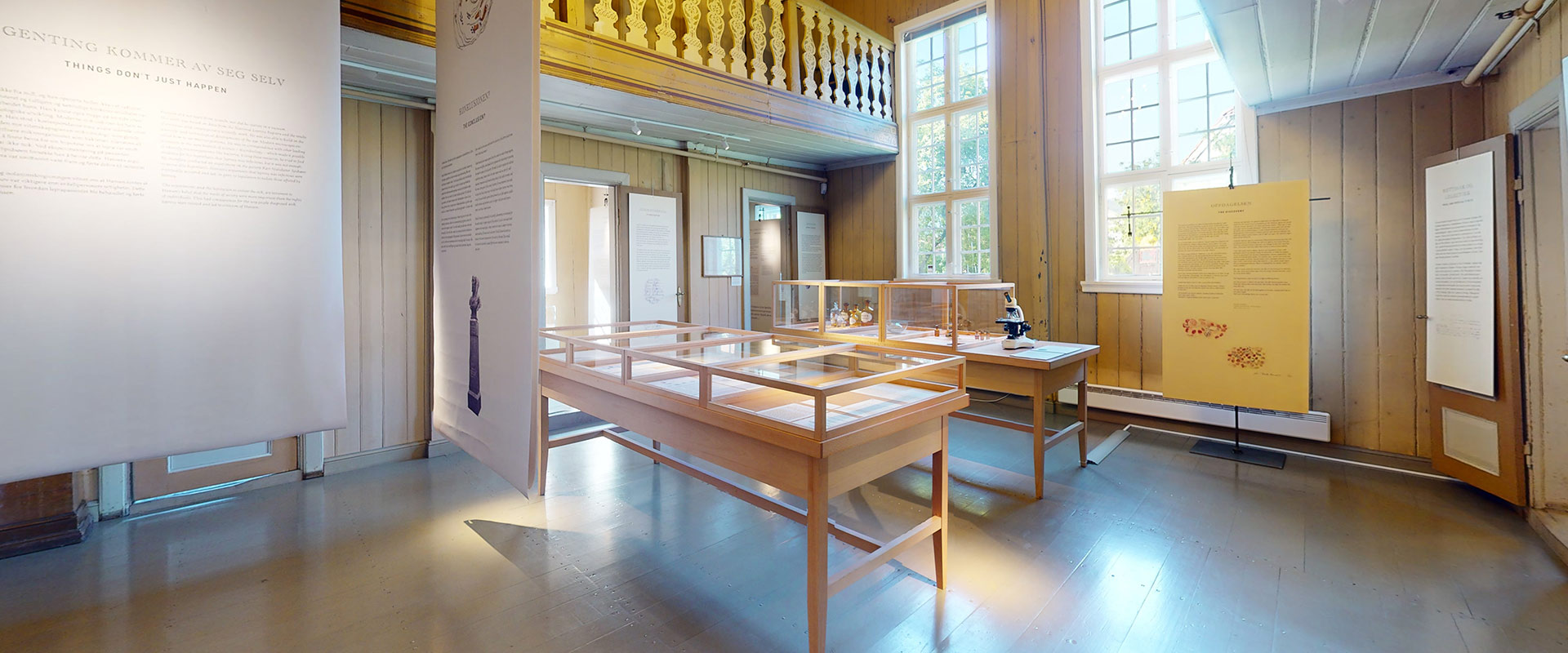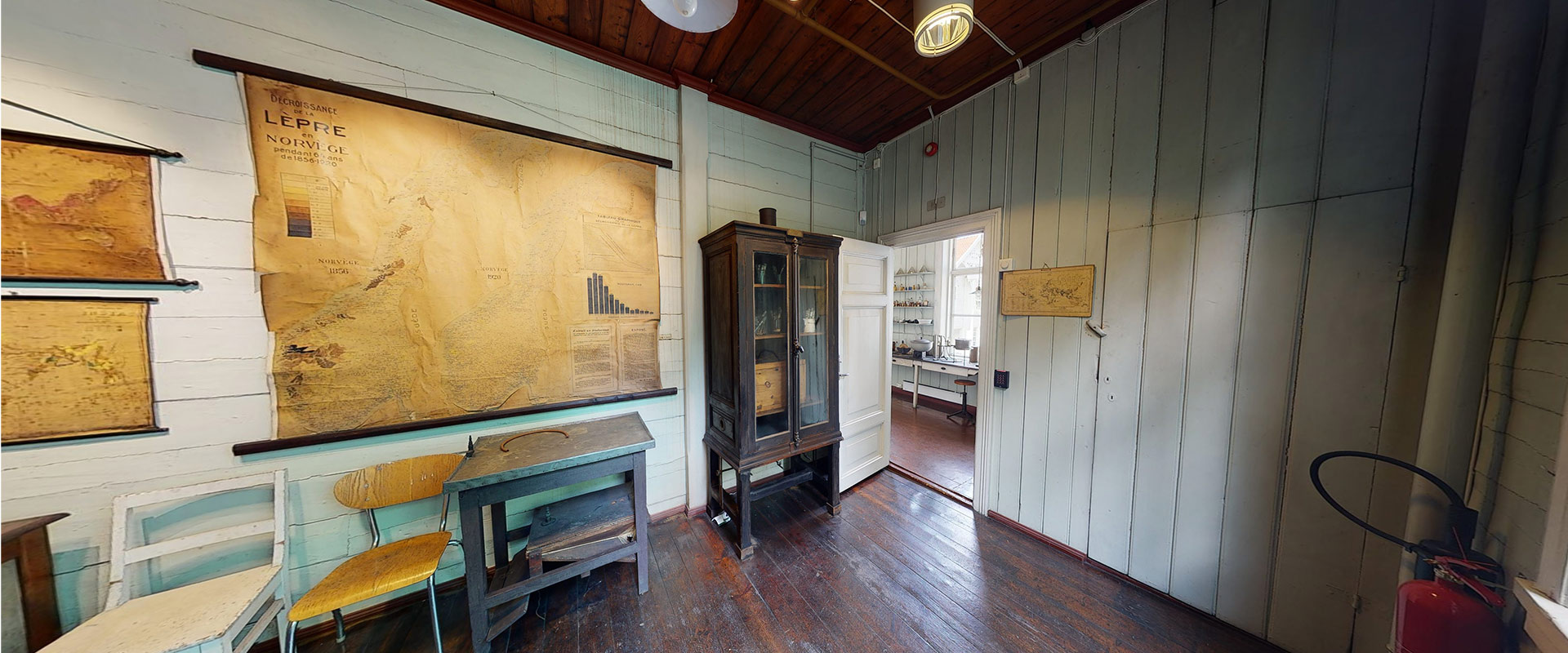The trial, verdict and ethics
Armauer Hansen conducted an experiment on patient Kari Nielsdatter at Pleiestiftelsen with the intention of proving that leprosy was an infectious disease. The experiment had legal consequences, but even though the verdict has since been considered groundbreaking for patients’ rights, it was not widely publicly discussed in its day.
After the experiment, Kari Nilsdatter complained to chaplain Grønvold, who wrote a letter of complaint to the hospital’s supervisory committee. After the supervisory committee had questioned Spidsøen and Hansen, they forwarded the complaint to the Ministry of Justice, which obtained expert opinions from two senior health officials. In their opinion, it was not the experiment itself that was problematic, but the fact that Spidsøen had not been informed. At the same time, they considered Hansen’s work as Chief Medical Officer indispensable to the state.
Following these statements, the Ministry of Justice separated the previously combined positions of physician of Pleiestiftelsen Hospital and Chief Medical Officer for Leprosy, and prosecuted Hansen for bodily harm.
On 31 May 1880, Hansen was convicted of abuse of his position as a physician at the hospital, but not of bodily harm. Spidsøen only played a minor role as a witness in the trial. The fact that Hansen lost his position as a physician but remained Chief Medical Officer for Leprosy conveyed the impression that the apparatus of state was simply resolving an internal issue. At her own request, Spidsøen was transferred to St. Jørgen’s Hospital, where she died three years later.
A sacrifice for the common good?
As a doctrine of right and wrong, ethics has a far wider scope than the law, and presents several grey areas and dilemmas. Doctors have a special code of ethics attributed to the ancient Greek physician Hippocrates. Its most important principle is not to harm patients, but Hansen clearly believed that the common good outweighed the needs of individual patient. In his defence during the trial, Hansen wrote that the scientific benefit of the experiment would outweigh the test subject’s suffering.
‘… I thought all the more to be entitled to this, even if the subject in question were to suffer somewhat from it, […] and especially when I considered the great scientific and national significance of resolving this pertinent question.’

The University of Bergen Library.

The Regional State Archives of Bergen.



